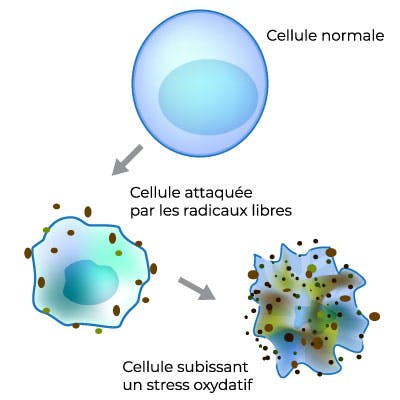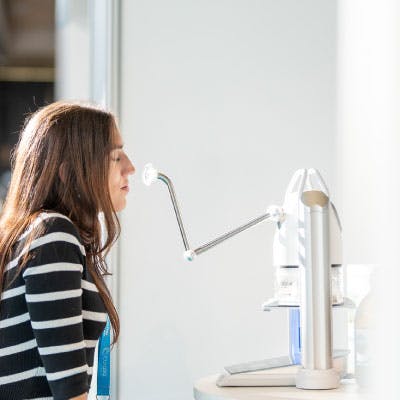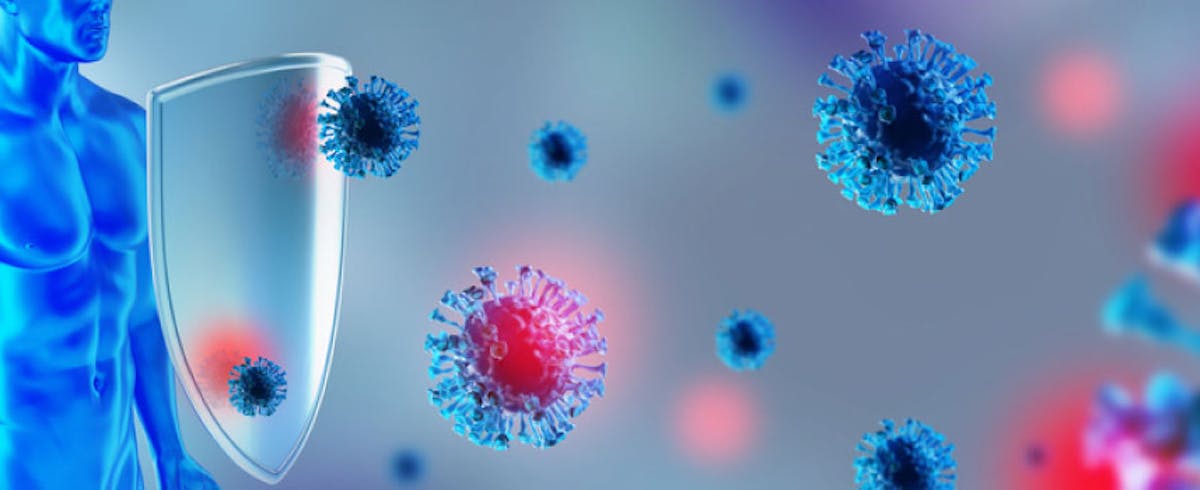Cellular oxygenation, supporting the immune system
To support immunity, we need to help the body by ensuring balanced cellular oxygenation.
The immune system protects our cells during bacterial or viral attacks, stress or inflammation.
It depends on the energy supplied by the body.
The immune system's demand for oxygen is multiplied by 10 to 20 when it is called upon.
In the absence of oxygen, T lymphocytes (whose role is to kill infected cells) are less effective.

Attacks on the immune system
The body is constantly exposed to harmful substances from the environment, water, food, man-made machines and pathogenic micro-organisms, i.e. those that can cause disease.
Faced with these dangers, we have one response: the immune system.
The immune system is extraordinarily complex, involving cells (white blood cells, for example), tissues and organs (lymphatic system, spleen, bone marrow, etc.) as well as the various molecules that these cells may produce (cytokines, etc.).
They all help to defend the body against external aggression (viruses, bacteria, parasites, etc.) and internal aggression (cancer cells, etc.). This system includes the lymphatic system, defence cells and various molecules.
Free radicals and immunity
When there is external aggression, free radicals are produced.

défenses naturelles - immunité -
Stress and immunity
Another danger to the body is stress.
Several studies have established a link between psychological stress, oxidative stress and reduced immune defences.
In the event of infection, stress is associated with reduced effectiveness of this defence system.
Conversely, excessive, intense and regular stress makes immune cells hyperactive. This stress modifies the expression of genes present in the white blood cells. These modified cells are then subject to excessive immune reactions, exacerbated defence reactions and increase the risk of cardiovascular problems, obesity and diabetes.

défenses naturelles - immunité -
The Jacquier Bol d'air, a natural solution for boosting your natural defences
The Bol d'air provides a solution to cellular under-oxygenation.
This natural method transforms the volatile parts of an extract of pine resin, Pinus Pinaster, into oxygen carriers.
Firstly, haemoglobin binds these carriers much better than oxygen alone. Secondly, in its 'nascent form', i.e. a form that is highly assimilable by the cells, oxygen will be better released in hypoxic tissues.
The aim, then, is not to provide the body with more oxygen but to optimise its uptake.
Bol d'air Jacquier and free radicals
The Bol d'air improves the body's ability to fight free radicals, especially if the sessions are long and regular.
Scientific observations carried out at the University of Dijon have shown an increase in the anti-free radical capacity of organisms, both in vivo and ex vivo. It's not a question of ingesting a specific anti-free radical but of reinforcing the body's overall capacity to react to free radicals during Bol d'air inhalations.
Bol d'air Jacquier: reduces stress and increases natural defences
The Bol d'air helps to reduce stress, improve mood and reduce anxiety.
Bol d'air Jacquier: controls inflammation and supports immunity
Inflammation is one of the weapons of our immune system, so it's important not to slow down its action but to control it.
Anti-inflammatory drugs (including cortisone, etc.) are likely to attenuate this reaction and mask the signs of seriousness, delaying diagnosis and medical treatment.
The maritime pine essential oil used in Bol d'air Jacquier is not "cortisone-like", but simply stimulates the adrenal glands and promotes energy production.

défenses naturelles - immunité -
The Bol d'air method supports the body's immunity and natural defences.
The method is oxygenating, but not oxidising. It improves anti-free radical capacity and stimulates resistance to oxidative stress.



